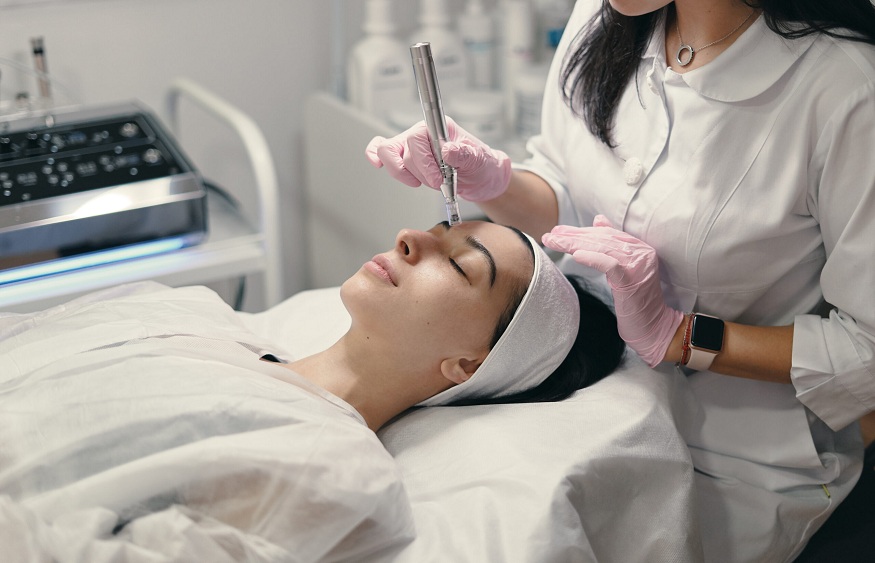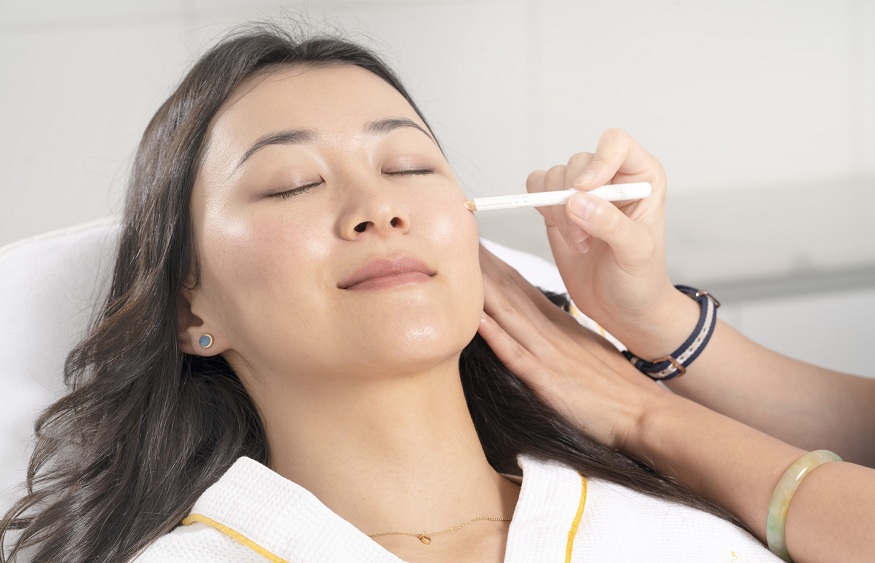
Rosacea, a prevalent, chronic skin condition that primarily affects the face, is often misunderstood. This condition necessitates thorough comprehension not only from the medical professionals who treat it but also from those who live with it every day. In this comprehensive guide, we will demystify 玫瑰痤瘡, delve into its causes, symptoms, treatments, and demonstrate how medical cosmetology plays a crucial role in managing this complex skin disorder.
What is Rosacea?
Overview
Rosacea is a common, long-lasting skin condition that mostly affects the face. It is frequently characterised by persistent redness, obvious blood vessels, and occasionally lumps and pimples.
Types of Rosacea
Rosacea presents in various forms, with four main types recognized by dermatologists:
- Erythematotelangiectatic Rosacea (ETR): Characterized by redness, flushing, and visible blood vessels.
- Papulopustular Rosacea: Often confused with acne, this type features redness, swelling, and acne-like breakouts.
- Phymatous Rosacea: This type results in skin thickening and enlargement, usually around the nose.
It’s not uncommon for individuals to experience more than one type of Rosacea simultaneously.
Causes and Risk Factors of Rosacea
The exact cause of Rosacea remains a mystery to scientists. It is likely that a combination of hereditary and environmental factors play a role. Certain conditions and characteristics, however, are linked with a higher likelihood of developing Rosacea:
- Having a family history of Rosacea
- Being over the age of 30
- Having Celtic or Scandinavian ancestry
- Damage to the skin due to sunburns or chronic exposure to harsh winds
- Certain diseases such as hypertension (high blood pressure) and diabetes
How to Recognize Rosacea: Signs and Symptoms
Rosacea often begins subtly, with the intermittent appearance of redness along the cheeks, nose, or forehead. Over time, the redness may deepen and become more persistent. Other symptoms can include:
- Swelling and a sensation of heat
- Appearance of small blood vessels on the surface of your face
- Pimples, bumps, and acne-like breakouts
- Thickened skin on the nose, forehead, cheeks, and chin
- Red, dry, itchy eyes and inflamed eyelids
Recognizing these signs early can lead to a more effective treatment and management of the condition.
How is Rosacea Diagnosed?
There isn’t a specific test to diagnose Rosacea. . In some cases, you may need to undergo tests to rule out other conditions, such as lupus, acne, or other skin conditions that mimic Rosacea’s appearance.
Impact of Rosacea on Quality of Life
Rosacea can significantly affect someone’s quality of life. Frequent episodes of facial redness and other plain indicators, if neglected, can result in severe psychological, social, and occupational problems.
Treatments for Rosacea
The primary goal of Rosacea treatment is to reduce the severity and frequency of flare-ups. Treatment options include:
Topical Treatments
Topical medications such as metronidazole, azelaic acid, and ivermectin are commonly prescribed to reduce inflammation and redness.
Oral Treatments
Oral antibiotics such as doxycycline, tetracycline, and minocycline are used to treat any inflammation in Rosacea. Isotretinoin, a powerful drug for severe cases that do not respond to other treatments, is used under close medical supervision.
Lifestyle Changes
Avoiding known triggers, using sun protection, following a gentle skincare routine, and managing stress can help control the frequency and severity of Rosacea symptoms.
Medical Cosmetology for Rosacea
醫學美容 has revolutionized the treatment of Rosacea with cutting-edge techniques such as laser therapy, intense pulsed light (IPL) therapy, and microdermabrasion. These treatments work by reducing the visibility of blood vessels, evening out skin tone, and smoothing out the texture of the skin. Dermatologists often recommend these procedures for severe cases of Rosacea, where topical and oral medications have failed to deliver satisfactory results.
Prevention and Care for Rosacea
Rosacea cannot be cured, but knowing your own triggers and avoiding them will help lessen flare-ups. These elements, which can include things like hot beverages, spicily foods, alcohol, temperature extremes, sunlight, stress, and specific drugs, can vary widely from person to person.
Good skincare practices can also help manage Rosacea. This includes using mild, non-abrasive cleansers, avoiding products that contain alcohol or other skin irritants, and protecting your face from sun and wind.
Rosacea: Myths and Facts
There are many misconceptions about Rosacea that can lead to confusion and misunderstanding. It’s crucial to separate fact from fiction:
- Myth: Rosacea is caused by poor hygiene. Fact: Rosacea is not caused by lack of cleanliness. It’s a result of complex processes involving the skin’s blood vessels, immune system, and perhaps even microorganisms.
- Myth: Rosacea is the same as acne. Fact: While Rosacea can mimic the appearance of acne, they are distinct conditions requiring different treatment approaches.
- Myth: Rosacea is contagious. Fact: Rosacea is not contagious. You cannot catch it from someone else, nor can you spread it to others.
Conclusion
While Rosacea can be a challenging condition to live with, remember that it is manageable. Understanding the condition, seeking effective treatments, and making necessary lifestyle changes can help you lead a fulfilling life, despite Rosacea.
FAQs
- What triggers Rosacea flare-ups?
Triggers vary from person to person but can include sunlight, stress, hot drinks, alcohol, spicy foods, certain skincare products, and medications. - Can Rosacea be cured completely?
As of now, there is no known cure for Rosacea. However, the symptoms can be effectively managed with the right treatment and lifestyle changes. - What role does diet play in managing Rosacea?
Certain foods, such as spicy foods and alcohol, can trigger Rosacea flare-ups in some people. Identifying and avoiding these triggers can help manage the symptoms. - How effective is medical cosmetology in treating Rosacea?
Medical cosmetology, which includes treatments such as laser therapy and IPL, can be very effective, particularly for severe cases. These treatments can reduce redness, visibility of blood vessels, and improve overall skin appearance. - Can Rosacea lead to other skin conditions?
Rosacea itself is a distinct skin condition, but its symptoms can overlap with other skin conditions like acne, dermatitis, and skin allergies. Also, untreated Rosacea can lead to a thickening of the skin, especially on the nose, a condition known as rhinophyma.

